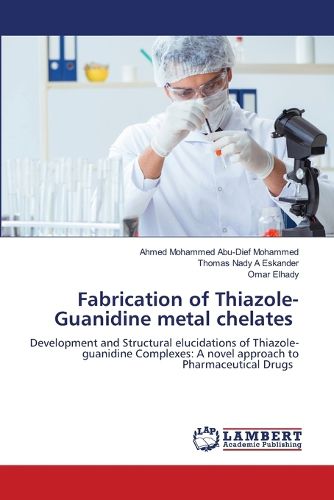Readings Newsletter
Become a Readings Member to make your shopping experience even easier.
Sign in or sign up for free!
You’re not far away from qualifying for FREE standard shipping within Australia
You’ve qualified for FREE standard shipping within Australia
The cart is loading…






This title is printed to order. This book may have been self-published. If so, we cannot guarantee the quality of the content. In the main most books will have gone through the editing process however some may not. We therefore suggest that you be aware of this before ordering this book. If in doubt check either the author or publisher’s details as we are unable to accept any returns unless they are faulty. Please contact us if you have any questions.
Inorganic chemistry has played a crucial role in the development of new drugs and therapies. Transition metal complexes have unique properties that make them attractive candidates for biological applications. For example, researchers have been exploring the use of metal-based drugs for the treatment of cancer, Alzheimer's disease, and other conditions. These drugs can be designed to target specific proteins or enzymes involved in disease processes, and their properties can be fine-tuned by modifying the structure of the metal complex. One of the advantages of metal-based drugs is their ability to interact with biological molecules in multiple ways, such as coordination bonding, electrostatic interactions, and redox reactions. This versatility allows for the design of drugs that can target a wide range of biological processes. Additionally, metal-based drugs can inhibit enzymes involved in DNA replication or repair, or they can interfere with cellular signaling pathways that are dysregulated in cancer cells. Another area of research in medicinal inorganic chemistry is the development of diagnostic agents, such as contrast agents for imaging studies.
$9.00 standard shipping within Australia
FREE standard shipping within Australia for orders over $100.00
Express & International shipping calculated at checkout
Stock availability can be subject to change without notice. We recommend calling the shop or contacting our online team to check availability of low stock items. Please see our Shopping Online page for more details.
This title is printed to order. This book may have been self-published. If so, we cannot guarantee the quality of the content. In the main most books will have gone through the editing process however some may not. We therefore suggest that you be aware of this before ordering this book. If in doubt check either the author or publisher’s details as we are unable to accept any returns unless they are faulty. Please contact us if you have any questions.
Inorganic chemistry has played a crucial role in the development of new drugs and therapies. Transition metal complexes have unique properties that make them attractive candidates for biological applications. For example, researchers have been exploring the use of metal-based drugs for the treatment of cancer, Alzheimer's disease, and other conditions. These drugs can be designed to target specific proteins or enzymes involved in disease processes, and their properties can be fine-tuned by modifying the structure of the metal complex. One of the advantages of metal-based drugs is their ability to interact with biological molecules in multiple ways, such as coordination bonding, electrostatic interactions, and redox reactions. This versatility allows for the design of drugs that can target a wide range of biological processes. Additionally, metal-based drugs can inhibit enzymes involved in DNA replication or repair, or they can interfere with cellular signaling pathways that are dysregulated in cancer cells. Another area of research in medicinal inorganic chemistry is the development of diagnostic agents, such as contrast agents for imaging studies.